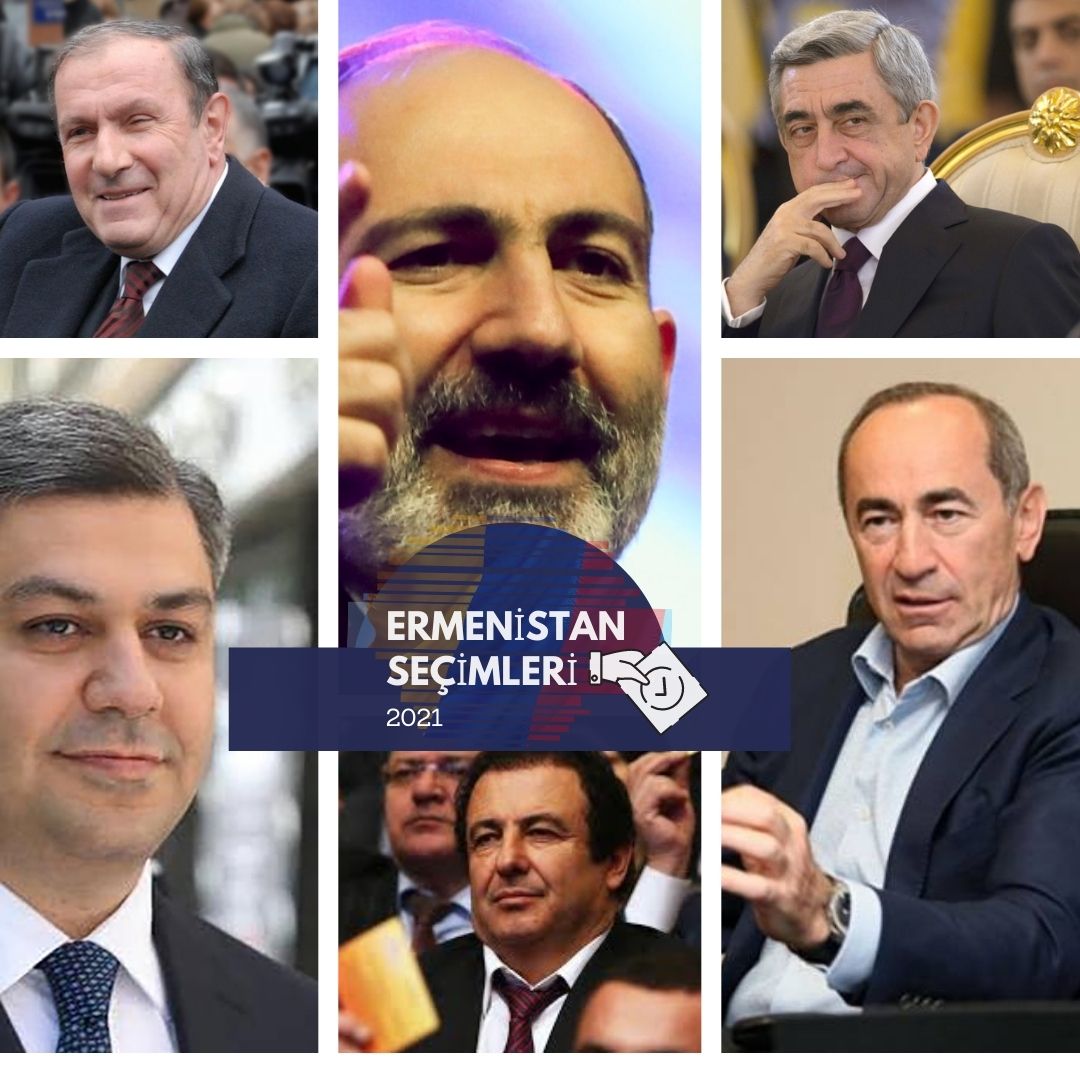
As the elections approach, the political environment is getting tense day by day in Armenia. After the liberation of Nagorno-Karabakh by Azerbaijan, Nikol Pashinyan is being considered as the only person responsible in Armenia, which had to leave the occupied regions. Names such as former presidents Robert Kocharian and Serzh Sarkissian who led the occupation in the 1990s are at the forefront of those who oppose Prime Minister Pashinyan.
The process starting with the parliament raid and attempt to lynch the Parliament Speaker after the signing of the 10 November armistice, has been led by Kocharian and Sarkissian, as well as ex-national security chief Arthur Vanetsyan. Following the allegations, on whether Iskandar missiles were used or not in the Karabakh War, turning into a crisis between the Government and Army, and the Prime Minister being left alone by the Armenian President has made the early elections unavoidable.
According to the lists handed over to the Central Electoral Commission on 31 May, 23 political parties and 4 alliances will be competing for the 132 seats in the parliament. As it will be remembered, in the early elections held after the “April Revolution” in 2018, the alliance in which the current PM Nikol Pashinyan’s party participated in, came to power by winning 83 seats out of 132.[1]
.jpg) On the other hand, Gagik Tsarukyan’s Prosperous Armenia Party became the main opposition party with 26 seats followed by the Bright Armenia Party with 17 seats. In addition, 8 independent MPs entered into the parliament.
On the other hand, Gagik Tsarukyan’s Prosperous Armenia Party became the main opposition party with 26 seats followed by the Bright Armenia Party with 17 seats. In addition, 8 independent MPs entered into the parliament.
On the other side, we notice that former national security chief Arthur Vanetsyan and former President Serzh Sarkissian stand together. As it will be remembered, Vanetsyan, who was the intelligence chief in Pashinyan's government and involved in allegations of "power abuse" with Pashinyan, has joined the opposition camp following his resignation. Afterwards, Vanetsyan went to Karabakh and then held talks with the Etchmiadzin before joining the political scene by establishing his own party. However, Vanetsyan's "Homeland Party" did not receive the support it expected from the public. For this reason, an alliance was formed with Serzh Sarkissian's Republican Party for the elections. The striking point in the Vanetsyan-Sarkissian alliance is that the leader of the alliance is Vanetsyan, not Sarkissian. On the other hand, one of the important supporters of the alliance is Sarkissian's son-in-law, former Vatican Ambassador Mikael Minasyan. At this point, it is necessary to talk about the latest developments about Minasyan. For Minasyan recently leaked a document claimed to be related to the border issues between Azerbaijan and Armenia, leading to the drop of Pashinyan's scores in the latest polls. In this respect, the point that Armenian politics has reached shows that the dominating mentality is "every method is allowed to win the election".
.jpg)
Gagik Tsarukyan, the leader of the Prosperous Armenia Party in the Parliament, also announced that they will not join any alliance. Recent polls indicate a possible shift in the votes of the Prosperous Armenia Party towards the "Armenia" alliance.
The first President of Armenia, Levon Ter Petrosyan, does not seem to be in any alliance either. His offer to form an alliance with both of the former presidents, did not receive any positive response. Therefore, he will enter the elections without any alliance.
According to polls, voters in Armenia do not seem to trust any current leader enough to form a government. Pashinyan's party still has the highest percentage of votes, but this alone is not enough to form a government. The votes he will get will not enable him to get the power alone and there is a risk that he will not be able to form a government even if he gets the highest vote. According to the latest polls, it looks like the Civil Contract Party could have a seat count between 57 and 61 seats in the parliamentary seat distribution in the election scenario. However, in order to be in power in Armenia, gaining %57 of the seats in the parliament is necessary.
Discussion Topics in the Election Atmosphere
A brief look at the election process in Armenia allows us to state that there is actually a very tense atmosphere. Because we see that the most important issue in the elections is the Nagorno-Karabakh. As we all know, it was the defeat of Nagorno-Karabakh that led Armenia to the early elections. Therefore, it is possible to say that both those who go to the polls and those who will come out of the ballot boxes are related to Nagorno-Karabakh.
All the criticisms directed against the Prime Minister of Armenia, Nikol Pashinyan, and all the promises of the opposition parties are shaped entirely around this issue. A significant part of the opposition blames Nikol Pashinyan for the whole process and the 10 November agreement.
At this point, it is necessary to mention the developments on the Azerbaijan-Armenia border for the past week. This has been met with such a backlash because it has the potential to affect public polls. In other words, we can say that the perception that there is a threat to Armenia on the Armenian border is parallel to the decrease in the trust for Prime Minister Pashinyan.
The key issue in the Armenian elections is that whoever will be the new elected prime minister in Armenia has to be stick to the agreement signed on November 10 and its implementation. If Pashinyan will be re-elected, it can be expected that he will take steps to implement the agreement, despite all his objections. On the other hand, it can already be foreseen that if Pashinyan fails to form a government, the politician who will replace him will be reluctant to take a positive stance on the Nagorno-Karabakh issue.
[1] “Observation of the early parliamentary elections in Armenia,” PACE, 21 December 2019, https://res.elections.am/images/doc/PACE09.12.18.pdf.
[2] Ani Mejlumyan, “Party lists for Armenian elections offer some surprises,” Eurasianet, 27 May 2021, https://eurasianet.org/party-lists-for-armenian-elections-offer-some-surprises.
[3] “Khachatur Sukiasyan,” Armeniapedia, accessed: 2 June 2021, http://www.armeniapedia.org/wiki/Khachatur_Sukiasyan.
[4] Mejlumyan, “Party lists for Armenian elections offer some surprises.”
[5] “Pre-election Surveys,” Gallup, accessed: 2 June 2021, https://gallup.am/reports/
© 2009-2025 Center for Eurasian Studies (AVİM) All Rights Reserved
No comments yet.
-
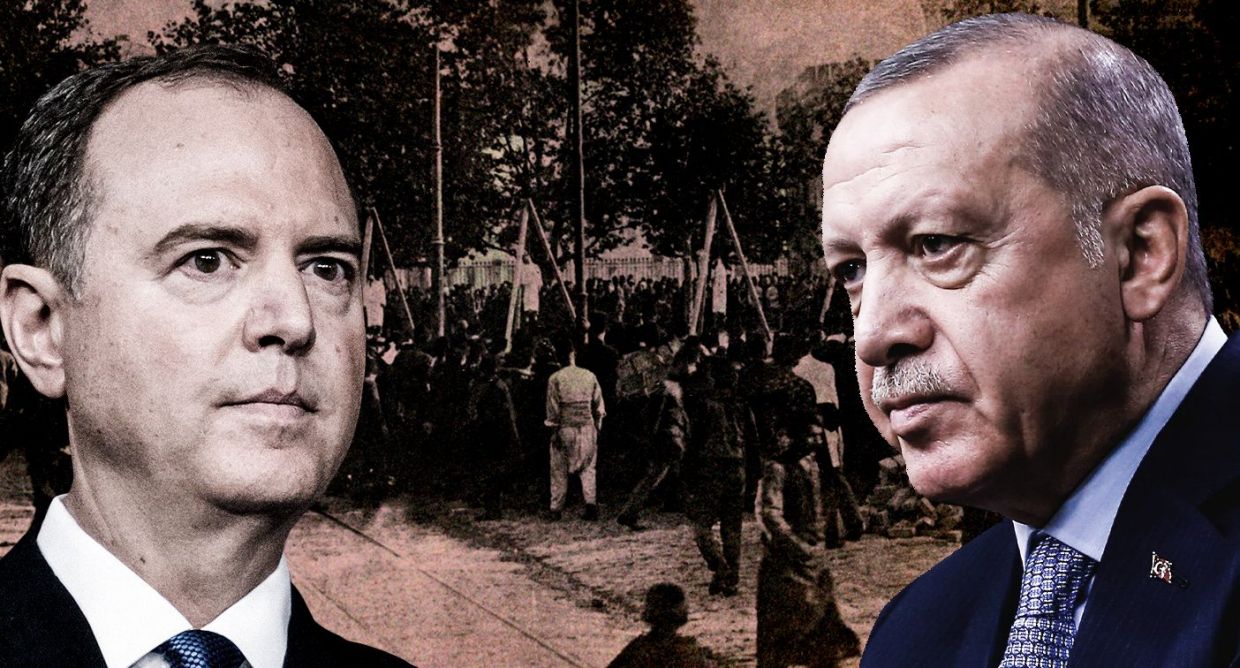 ARE ARMENIAN CLAIMS SUBJECT TO ABUSE?
ARE ARMENIAN CLAIMS SUBJECT TO ABUSE?
Tutku DİLAVER 01.11.2019 -
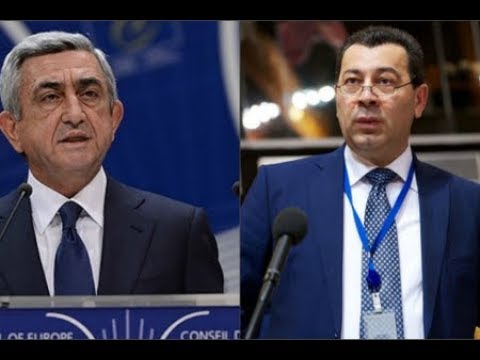 THE SPEECH OF ARMENIA’S PRESIDENT AT THE PARLIAMENTARY ASSEMBLY OF COUNCIL OF EUROPE
THE SPEECH OF ARMENIA’S PRESIDENT AT THE PARLIAMENTARY ASSEMBLY OF COUNCIL OF EUROPE
Tutku DİLAVER 06.02.2018 -
 APPROACHING EARLY ELECTIONS IN ARMENIA
APPROACHING EARLY ELECTIONS IN ARMENIA
Tutku DİLAVER 18.06.2021 -
 UNDERSTANDING NAGORNO-KARABAKH DESPITE THE BIASED MANNER OF THE WESTERN MEDIA
UNDERSTANDING NAGORNO-KARABAKH DESPITE THE BIASED MANNER OF THE WESTERN MEDIA
Tutku DİLAVER 21.01.2021 -
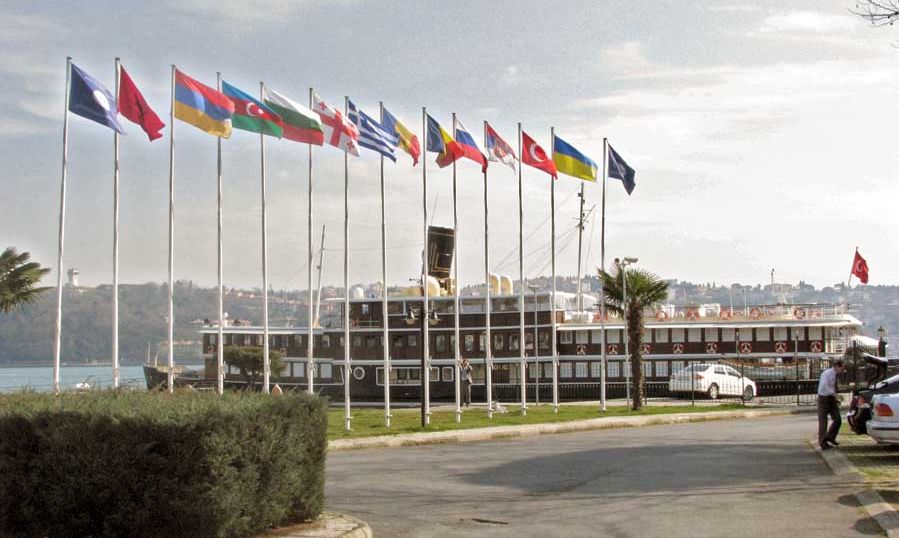 THE BLACK SEA ECONOMIC COOPERATION AND CAUCASUS
THE BLACK SEA ECONOMIC COOPERATION AND CAUCASUS
Tutku DİLAVER 19.07.2018
-
 GREECE’S “CHERRY-PICKING” POLICY IN INVOKING THE RULES OF INTERNATIONAL LAW
GREECE’S “CHERRY-PICKING” POLICY IN INVOKING THE RULES OF INTERNATIONAL LAW
Teoman Ertuğrul TULUN 31.08.2020 -
THE NECESSITY TO OPEN THE ARCHIVES AND ESTABLISH A JOINT COMMISSION OF HISTORIANS AND EXPERTS HAVE COME TO THE FORE ONCE AGAIN
Alev KILIÇ 20.12.2012 -
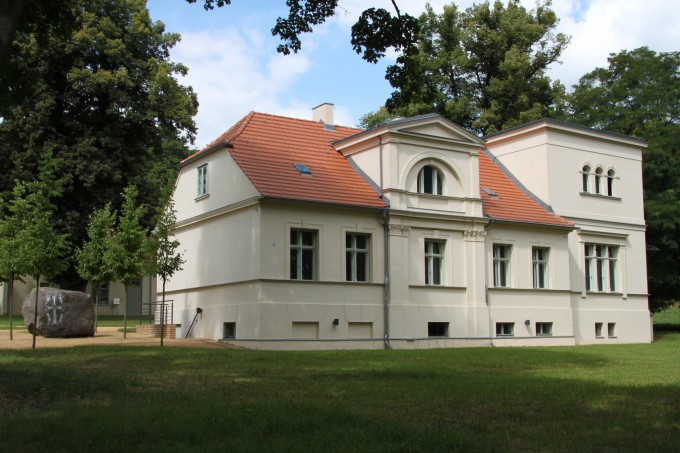 TWO STATEMENTS REGARDING 10TH WATS MEETING
TWO STATEMENTS REGARDING 10TH WATS MEETING
AVİM 20.09.2017 -
 16TH SUMMIT OF BRICS LEADERS
16TH SUMMIT OF BRICS LEADERS
Gülperi GÜNGÖR 19.11.2024 -
SEASON OF RESOLUTIONS STARTED IN THE US
Ömer Engin LÜTEM 23.03.2012
-
25.01.2016
THE ARMENIAN QUESTION - BASIC KNOWLEDGE AND DOCUMENTATION -
12.06.2024
THE TRUTH WILL OUT -
27.03.2023
RADİKAL ERMENİ UNSURLARCA GERÇEKLEŞTİRİLEN MEZALİMLER VE VANDALİZM -
17.03.2023
PATRIOTISM PERVERTED -
23.02.2023
MEN ARE LIKE THAT -
03.02.2023
BAKÜ-TİFLİS-CEYHAN BORU HATTININ YAŞANAN TARİHİ -
16.12.2022
INTERNATIONAL SCHOLARS ON THE EVENTS OF 1915 -
07.12.2022
FAKE PHOTOS AND THE ARMENIAN PROPAGANDA -
07.12.2022
ERMENİ PROPAGANDASI VE SAHTE RESİMLER -
01.01.2022
A Letter From Japan - Strategically Mum: The Silence of the Armenians -
01.01.2022
Japonya'dan Bir Mektup - Stratejik Suskunluk: Ermenilerin Sessizliği -
03.06.2020
Anastas Mikoyan: Confessions of an Armenian Bolshevik -
08.04.2020
Sovyet Sonrası Ukrayna’da Devlet, Toplum ve Siyaset - Değişen Dinamikler, Dönüşen Kimlikler -
12.06.2018
Ermeni Sorunuyla İlgili İngiliz Belgeleri (1912-1923) - British Documents on Armenian Question (1912-1923) -
02.12.2016
Turkish-Russian Academics: A Historical Study on the Caucasus -
01.07.2016
Gürcistan'daki Müslüman Topluluklar: Azınlık Hakları, Kimlik, Siyaset -
10.03.2016
Armenian Diaspora: Diaspora, State and the Imagination of the Republic of Armenia -
24.01.2016
ERMENİ SORUNU - TEMEL BİLGİ VE BELGELER (2. BASKI)
-
AVİM Conference Hall 24.01.2023
CONFERENCE TITLED “HUNGARY’S PERSPECTIVES ON THE TURKIC WORLD"









